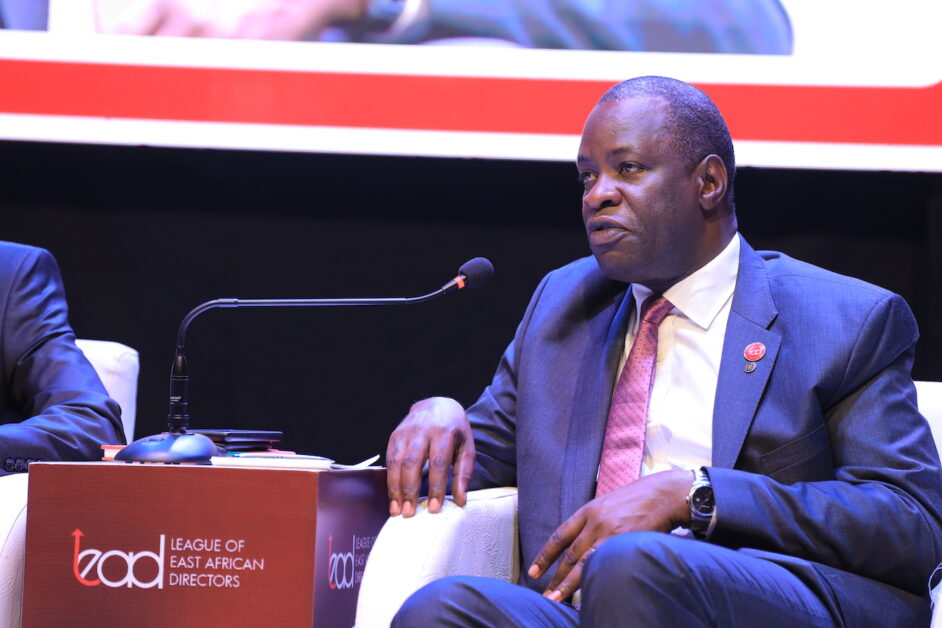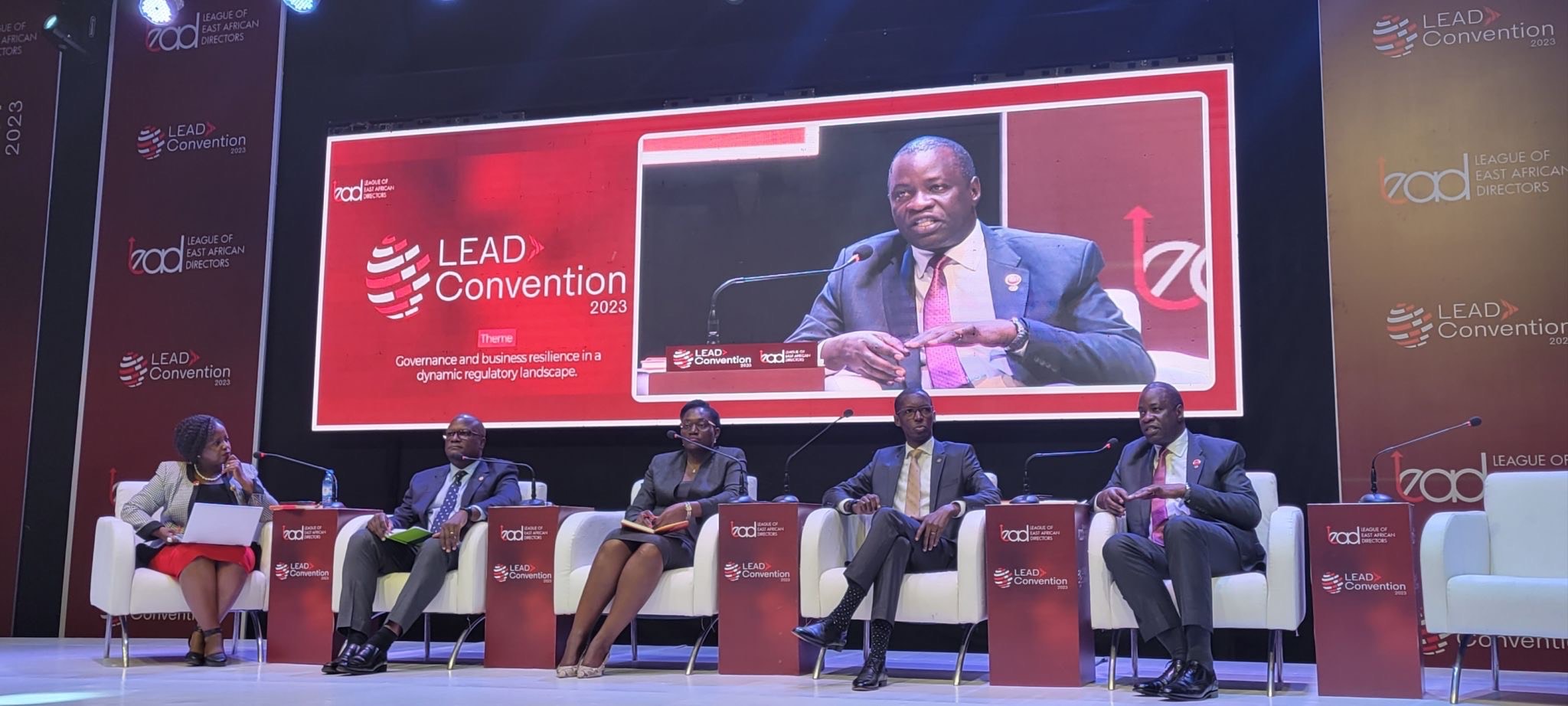Rather than worry about the risks and disruptions to sustainability caused by rapidly changing technologies, business leaders and especially board directors should instead embrace the opportunities presented by technology, as well as proactively anticipate and invest in the technology needs of the business as well as equip staff with matching skills, leaders have been advised.
Sam Ntulume, the Ag. Managing Director, I&M Bank Uganda, speaking at the just-ended 2nd Annual LEAD Convention at the Kampala Serena Hotel, said that in an era of rapidly shifting customer needs and preferences, businesses must combine technology and human interactions to create a superior customer experience.
He therefore advocated for the equipping of management and board members with the necessary skillsets, to appreciate and understand technology’s impact on business growth and strategic intent.
“Technology is an enabler, and we must embrace it while understanding the associated risks. Let’s develop the skillsets needed to create the value required in this dynamic environment. The right technology empowers relationship managers to engage meaningfully with customers, enabling them to deliver enhanced shareholder and stakeholder value,” Ntulume said.
He went ahead to advise that one of the best implementation moves is the establishment of committees or dedicated groups, to focus on technology investments at the board level, and emphasised the need to skill staff to harness technology’s potential fully.
Ntulume further stressed the importance of proper governance in technology investments, to avoid costly mistakes and ensure sustainable growth, adding that everyone is vulnerable to hackers and extra caution needs to be taken.
“It’s not a matter of, will we be hacked? It’s a matter of when shall we be hacked,” he said.

PwC’s 26th Annual Global CEO Survey, themed “Winning today’s race while running tomorrow’s” reported that 68% of the interviewed CEOs in East Africa identified technology⏤ advanced technology, AI, metaverse and blockchain technologies etc, as the biggest potential disruptor to industry profitability in the next 10 years. However, globally, CEOs identified changing customer preferences as the biggest disruptor.
In the region, PwC said, the uptake of technology had come along with risks such as cyber security breaches “which may be the reason why the CEOs highlight cyber security as one of the main threats their businesses and economy are exposed to”.
East African CEOs also identified changes in regulations (64%) and changing customer demands/ preferences (64%).
Philip Andrew Wabulya, the Executive Director Petroleum Investment Fund at Bank of Uganda, who presented the keynote address on behalf of the Deputy Governor- Dr. Micheal Atingi –Ego, reminded stakeholders about the significance of revolving around the ‘four Ps’ of Corporate Governance; People, Purpose, Processes and Performance.
“The frequency and severity of shocks imply that organisations require regular immunisation boosters to keep the defences. Great Corporate governance and regulation are not silver bullets or panaceas for resilience but serve to immunise organisations against inevitable shocks,” he said.
Organised by the League of East African Directors (LEAD), LEAD Convention is an annual event that brings together prominent business leaders from the region. It is a platform that plays a crucial role in fostering collaboration, sharing insights, and promoting knowledge exchange among directors, executives, and key decision-makers from various industries a platform through which its members, partners and leaders from different backgrounds and expertise meet, discuss and distil concepts, ideas and narratives that can be applied in the respective leadership contexts and areas of influence hence the convention.
The just-ended convention was organised under the theme: “Governance and business resilience in a dynamic regulatory landscape.”
The League of East African Directors (LEAD) is a not-for-profit organisation which was formed after realising that many East African companies in need of directors did not have a consolidated reference point for the selection and training of active and potential directors and tended to rely on personal references and “club” like structures to make board level appointments. Its mission is: “Equipping of Boards for the advancement of East African businesses and other related entities”.

 I&M Select Banking Sapphire Club wins “Best Innovation of the Year” at UMEAS 2025
I&M Select Banking Sapphire Club wins “Best Innovation of the Year” at UMEAS 2025


